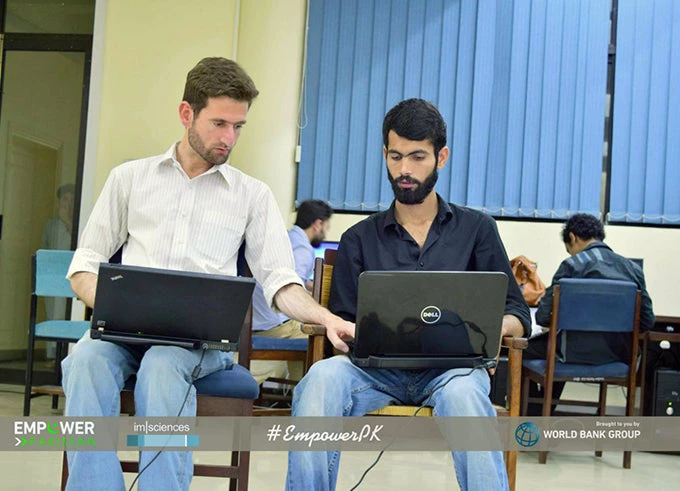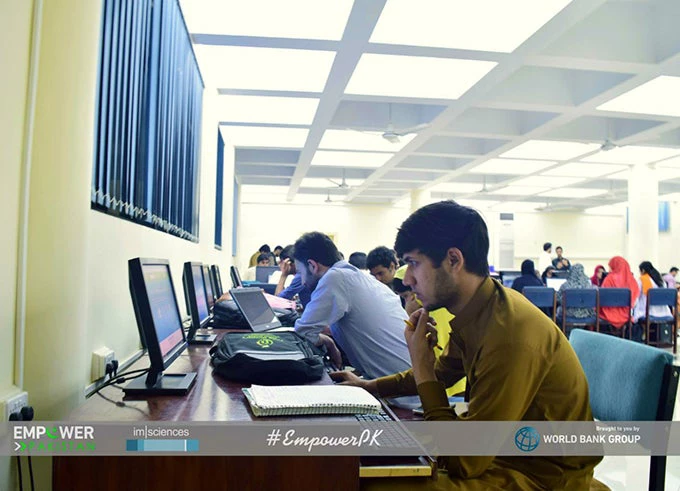
These kinds of connected communities can be a great short-term solution to some of Pakistan’s challenges in creating jobs.
Pakistan is home to a large youth population, with nearly 100 million youth under the age of 24. Creating more and better jobs for this new generation will be a major development challenge. According to Pakistan’s own estimates, the country will need to grow at around 7 percent a year to absorb all these young people into productive economic participation. But constraints on energy supply as well as budget and capacity constraints on government are going to make this challenging in the short term.
What we have seen working in Pakistan over the last few years is that there is an emerging cultural shift that is becoming more accepting of self-employment and entrepreneurship as legitimate employment pathways for young people.
Given the constraints of the domestic economy to absorb all these young people, many of the employment opportunities will come through the establishment of new businesses. And the tech industry in Pakistan has shown a steady and healthy growth rate in recent years, with the potential both to drive growth through the development of new business models, startups and innovation.
One of the major issues we have seen working here is that many young people are curious about how the internet and technology can offer employment, but are not sure where to start.
Want a digital career? Here’s how to get started:
For those interested in learning some skills and linking to work through international marketplaces—also called freelancing—there are resources available to help with training.
Many of the top freelancing sites offer introductory materials to learn basic freelancing, such as Upwork and SamaSchool. Independent online learning sites also offer courses and certificates, most notably Coursera.
But the best thing to do as a freelancer is begin to develop a portfolio that is representative of your talents, such as graphic design, coding, building websites, Photoshop, content writing, blogging, etc. An overview of the best types of courses can be found here.

Pakistan is also seeing a number of co-working spaces cropping up in major cities, including Basecamp in Peshawar, IVY in Islamabad, Tech Hub in Lahore and Dotzero in Karachi. Becoming a part of these communities can help freelancers and budding digital entrepreneurs build networks that can be really critical to finding the right support systems.
Tech entrepreneurs who want to move beyond freelancing and want to launch the next big disruptive innovation will also find a growing support system to nurture, refine and propel their ideas to market incubators and accelerator programs. These programs all provide a mix of training, mentorship and support to help get those ideas to a point of being able to launch as businesses. And while financing for these early stage startups is still nascent, there are several initiatives to get angel investment networks formalized, bringing an important element to business development, but also help to strengthen the tech community as a whole, building support systems for future innovators.
All of these pieces make up the innovation ecosystem that has the potential to help drive Pakistan’s growth over the coming decade. And it will be the participation of young people in this digital economy that will lead to socio-economic change in Pakistan, changing the way that traffic tickets are issued, music is curated, houses are purchased, and ridesharing is done.
All of these changes also draw on the creativity, ingenuity, passion, and dedication of Pakistan’s youth to envision their country in a better place.


Join the Conversation